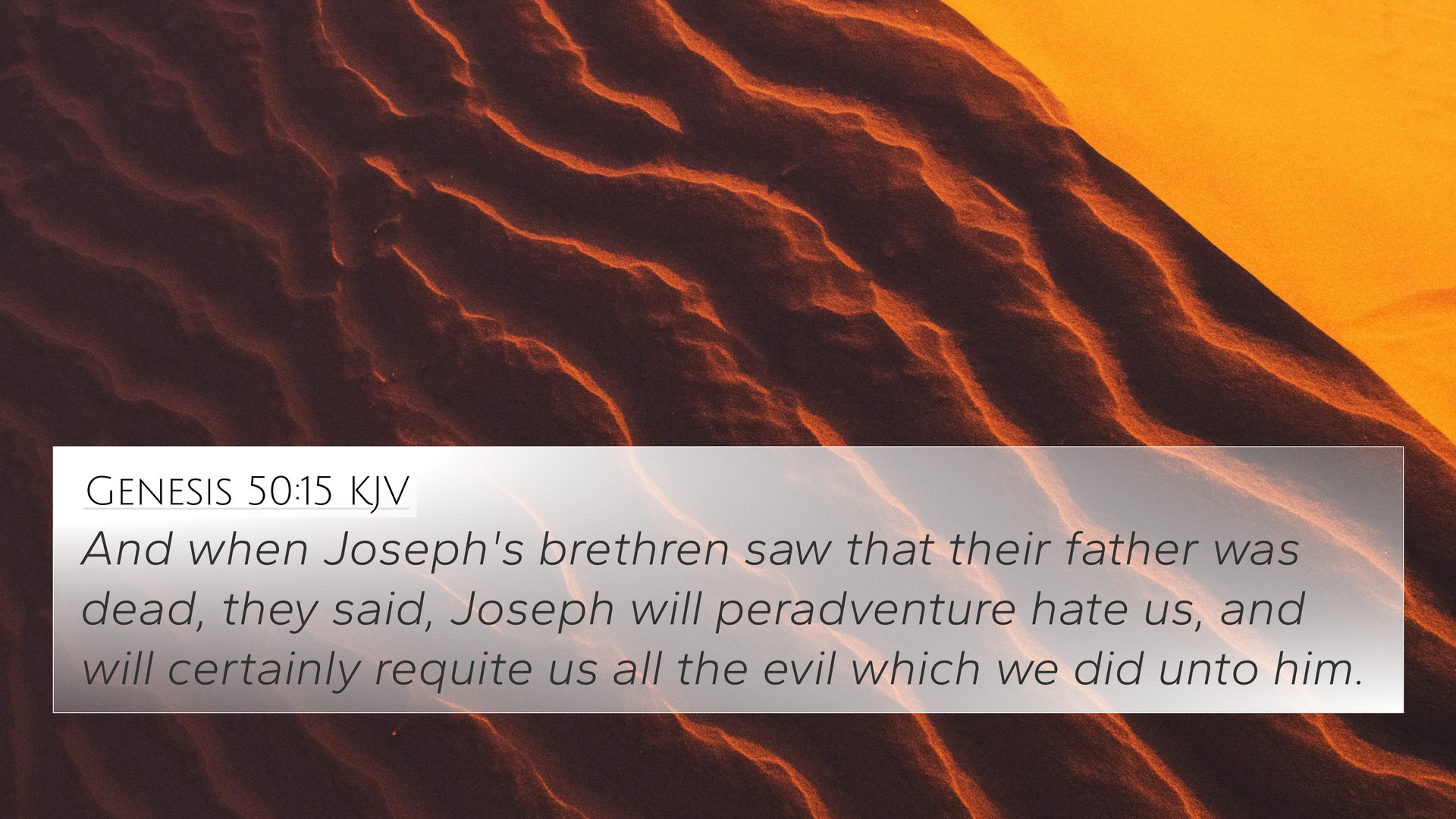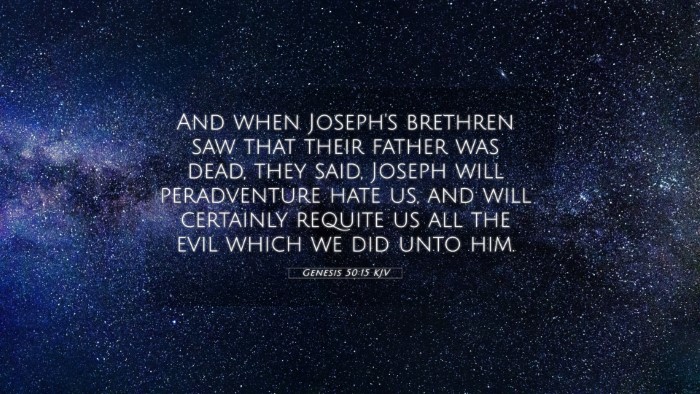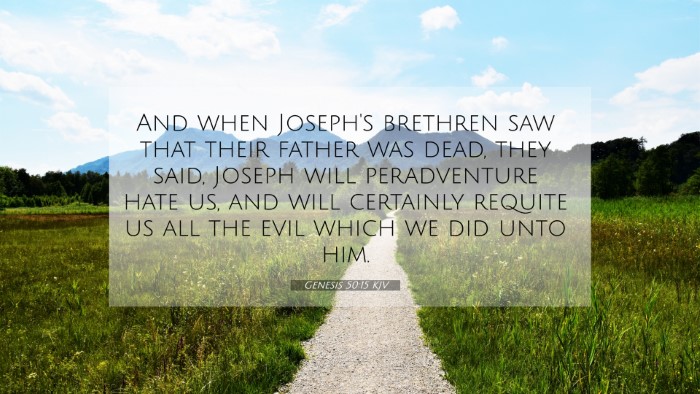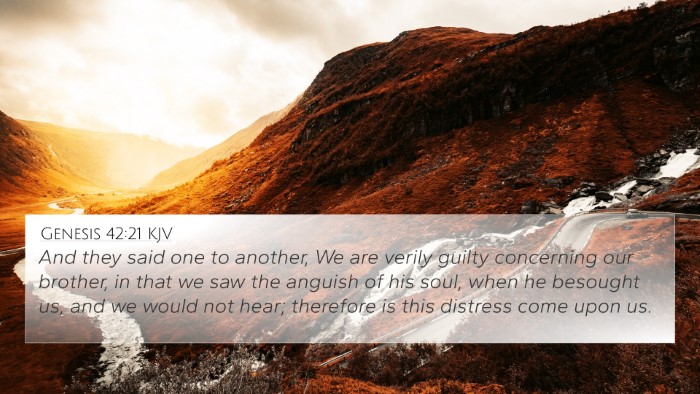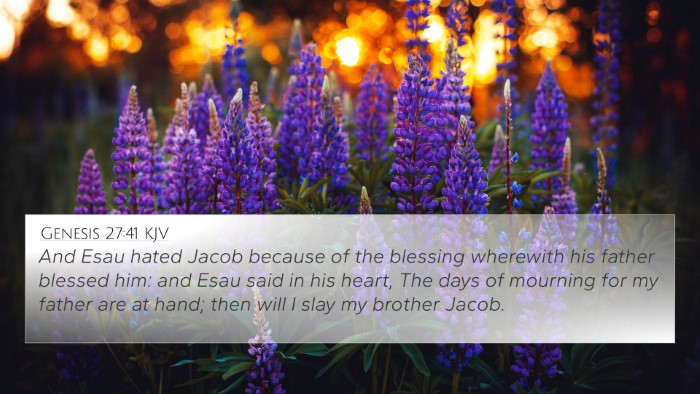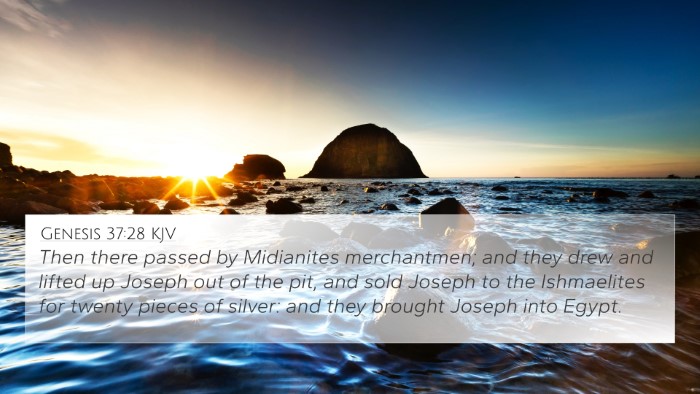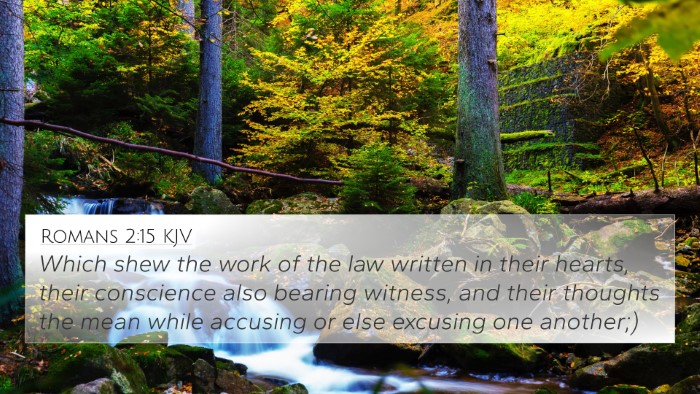Understanding Genesis 50:15
Genesis 50:15 states: “When Joseph's brothers saw that their father was dead, they said, 'It may be that Joseph will hate us and pay us back for all the evil that we did to him.'” This verse captures a moment of anxiety and reflection following the demise of Jacob, Joseph's father. It reveals the psychological state of Joseph's brothers, who feared retribution from Joseph for their past actions.
Verse Interpretation and Commentary
The commentaries from notable theologians shed light on several aspects of this verse:
-
Matthew Henry:
Henry emphasizes the brothers' guilt and their fear stemming from their previous betrayal of Joseph. Their mindset demonstrates human nature's tendency towards self-preservation and paranoia after wrongdoing.
-
Albert Barnes:
Barnes discusses the implications of their fear, suggesting it indicates a lack of understanding of Joseph’s character. Joseph had forgiven them before their father's death, and their dread signifies how past sins can haunt individuals.
-
Adam Clarke:
Clarke notes the significance of their fear as a consequence of unconfessed guilt. He highlights that the brothers, knowing their actions had been evil, struggled with the possibility of facing Joseph's wrath, reflecting on the importance of seeking reconciliation in relationships.
Linking Bible Scriptures
This verse connects to several other biblical references that echo its themes of forgiveness, guilt, and reconciliation. Here are key cross-references:
- Genesis 37:18-28 - The narrative of Joseph's brothers selling him into slavery.
- Genesis 45:4-15 - Joseph’s revelation to his brothers, signifying forgiveness.
- Psalms 51:3 - David expresses the need for acknowledgment of sin, echoing the brothers' unconfessed guilt.
- Matthew 6:14-15 - A New Testament reminder of the necessity of forgiveness among ourselves.
- James 2:13 - The principle that judgment is without mercy to those who have shown no mercy.
- Romans 12:19 - The teaching of leaving vengeance to God, which reflects Joseph's earlier response to his brothers.
- Matthew 18:21-22 - The teaching on forgiveness, emphasizing the boundless nature of forgiveness we should show to others.
Thematic Bible Verse Connections
Genesis 50:15 serves as a thematic bridge in understanding the dynamics of sin, guilt, and forgiveness in the biblical narrative. It prompts readers to consider the broader implications of their actions and the responses they evoke from others.
- Guilt and Fear: Joseph's brothers represent individuals burdened by their sins, illustrating a common biblical theme that resonates throughout scripture.
- The Nature of Forgiveness: Their fear highlights a misunderstanding of grace, a theme prevalent in both Old and New Testament teachings.
- Family Dynamics and Reconciliation: The strain in Joseph's family underscores the importance of addressing conflicts and seeking unity.
Practical Application and Reflection
In studying Genesis 50:15, believers can reflect on their own lives regarding unresolved guilt and the necessity of seeking forgiveness from others. It demonstrates the potential consequences of unacknowledged sins and invites individuals to pursue reconciliation:
- Self-Examination: Evaluate personal past actions and relationships, seeking to reconcile where needed.
- Embrace Forgiveness: Cultivate an understanding of God's grace, applying it in relationships with others.
- Encourage Open Communication: Like the brothers' eventual conversation with Joseph, encourage honesty and dialogue to heal relationships.
Exploring Cross-References Effectively
For anyone exploring cross-references related to Genesis 50:15, consider these methods:
- Utilizing a Bible Concordance: Helps identify words and themes shared across passages.
- Bible Reference Resources: Engage with study Bibles or online tools that offer thematic analysis.
- Group Bible Study: Discuss connections with others, facilitating deeper insights.
Conclusion
Genesis 50:15 is a profound verse that encourages reflection on the complexities of human relationships, the weight of guilt, and the transformative power of forgiveness. By cross-referencing scriptural texts, believers can deepen their understanding of these themes and apply them to their lives.
